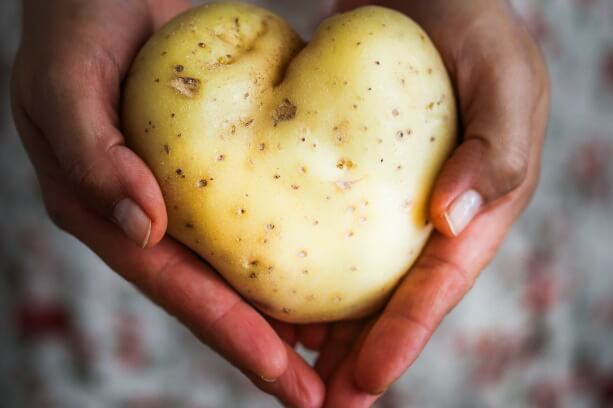
Food loss and waste is a global challenge that the European Union has set as a priority issue in recent years with the implementation of the Circular Economy Action Plan, as well as with the European Green Deal.
As the world’s population is expected to increase, so is the need for food. The latter is a basic good that everyone has a right to, it requires valuable resources for its production, while food loss and waste has a moral, economic and environmental impact.
In addition, the 2030 Agenda for Sustainable Development, which was adopted by the UN, includes goals such as: Reaching responsible consumption and production by 2030; achieving a 50% decrease per capita to global food waste at the retail and consumer levels; and reducing food loss along production and supply chains, including post-harvest losses.
The numbers are shocking
According to FAO, almost one third of food produced for human consumption – approximately 1.3 billion tonnes per year – is either lost or wasted globally. The reduction of this outrageous number is essential for improving food security and reducing the environmental footprint of food systems (FAO, 2011).
It is important to point out that in the EU around 90 million tonnes of food waste is generated annually, with households generating more than half of the total food waste (47 million tonnes) (FUSIONS, 2016). And, to put things in the right perceptive, food waste refers to food appropriate for human consumption being discarded, whether or not after it is kept beyond its expiry date or left to spoil.
Volunteers and NGOs: The superheroes to the rescue
At European level, there are volunteers and Non-Governmental Organisations that have made it their sole purpose to collect and distribute edible food, fruit and vegetables to those in need. For this purpose, they collect left over edible food, fruit and vegetables from restaurants, hotels, as well as local markets.
Some examples of such organisations are the NGOs “Mporoume” in Athens, “Free Meals on wheels” in Thessaloniki, as well as similar initiatives that have thankfully sprung in Cyprus with excellent and optimistic results in a very short time.
LIFE Programme as a food waste prevention instrument
The LIFE Programme, as the EU’s funding instrument for the environment and climate action, can contribute to the prevention and reduction of food waste. This is possible through co-financing Projects, which aim to inform and create awareness around the matter, implement waste reduction actions and encourage the donation of edible food.
LIFE Food for Feed – F4F
An example of such a LIFE project is Food for Feed – F4F. Its aim is to evaluate an integrated feed production process from food waste. Food waste is pre-treated, hand sorted and stored in refrigerators at the hotels and restaurants that participate in the project. The food waste is then collected with refrigerated vehicles and transferred to the pilot solar drying unit, where temperatures can reach 60oC. Hot water, which is connected to solar panels, flows beneath the food waste. The pasteurization happens quickly through a modified and enhanced solar drying process that allows for microorganisms to be killed and turns the food waste into animal feed, for both livestock (hens and pigs) and pets (dogs).
FLAW4LIFE
Another example of a LIFE project is FLAW4LIFE. The purpose of this project was to change food consumption habits and create an alternative market for ‘ugly’ (or not pretty enough) fruit and vegetables. It aimed to bring about the equal marketing of all quality fruit and vegetables regardless of their size, colour and shape. As a matter of fact, the project’s actions had a strong socio-economic and environmental impact.
More specifically, the project managed to reduce food waste by 15 tonnes per week. In addition, the farmers who participated in this project were saving €5.500 per week and €250.000 per year, as their ‘ugly’ produce was available for consumption instead of being treated as waste.
All in all, 187 farmers participated in the project, along with 767 volunteers, 11 jobs were created specifically for the project and 3410 consumers were enjoying the fruit and vegetables. All this fruit and vegetables would otherwise be discarded due to their ‘ugly’ looks.
LIFE-FOODWASTEPREV
A third example is LIFE-FOODWASTEPREV. This project aimed to decrease the proportion of food waste among Hungarian households through changing the consumers’ attitude and behavioural patterns. This was achieved through a variety of means, each focusing on a different target audience, such as schoolchildren and four different sectors of the food supply chain (i.e. caterers, retailers, food industry and households).
To sum up, saving edible food, whether that is cooked food or fresh fruit and vegetables, is a very important and critical issue that affects not only the final consumer, but also all stages of the supply chain – from primary production to processing, distribution and consumption. The reality is that the edible food which is wasted every year is more than enough to feed all the world’s hungry. It is, therefore, necessary to create a mechanism for collecting and distributing edible food that would otherwise go to waste.
Find out more about the LIFE Programme here. If you have an idea that can help tackle the issue of food loss and food waste contact us today. Perhaps your idea could eligible for LIFE funding!
Author: Chara Mavronicola, Environment and Resource Efficiency Expert


